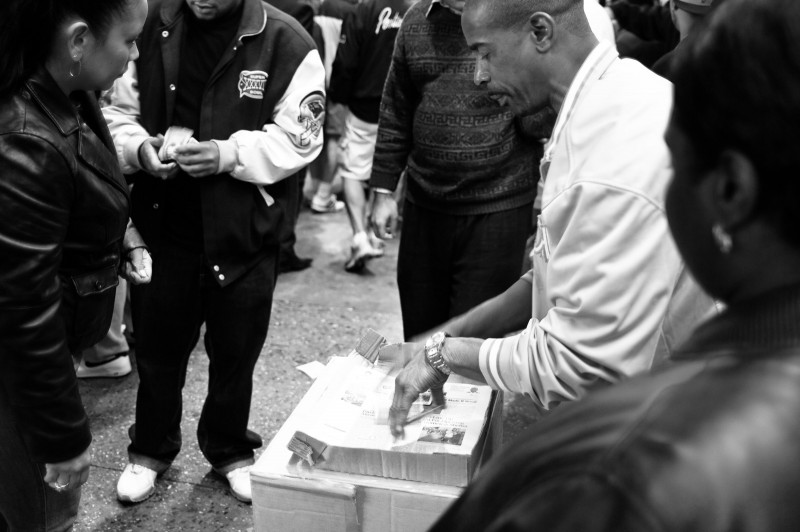We looked at this guy as a singular dealer, at this point, we should call him a hustler, and hedged our bets, based on conventional wisdom that all the articles we read and degrees we collected would outweigh any advantage that he had. We thought we were the intellectuals; trained in rational thinking, analysis, and overall intelligence. This thinking played right into his cards, pardon the pun. As anti-racist scholars, we got caught up in the moment and forgot about the context of every single paragraph we had ever read on the matter of subjugated knowledge.
That is: certain knowledges are validated through conventional avenues of society and others are delegitimized.
This hustler with his three bent-up cards was ever much the sociologist, psychologist and intellectual technician as we were. And in his domain, his environment, we were in fact his subordinates. He was the professor of knowledge. His course: the School of Hard Knocks.
We circled back around the block and to our surprise we witnessed identical games set up down the block, on the next intersection and even across the street! As we came to our senses and started to watch other games as mere observers and not participants, the complex arrangement of the hustle became more and more clear. It wasn’t just the hustler who was playing the odds. It was damn near everyone at the “table” who was in on it!
The lady who so casually clung to my friend’s arm for comfort, she was part of the dynamic. The dude adjacent to her, who was betting wildly, winning and losing hand after hand, was in on it. They had set up an intricate environment meant to catch one sucker who thought he was smarter than some dude on the corner flipping cards. The elaborate scheme played right to the notion of “universal intelligence”.
I watched a guy lose two thousand dollars. When the situation started to get a little bit tense, someone from the street (yes, they even had colleagues on the street) hailed some type of “command”. Then, the “gambling table”, milk crates, cards, and people involved all scattered in different directions. This happened in a matter of moments. This was more ethnographic discovery. This “hustle” was more intricate than I had ever thought.
The reason why I scrambled for money and why my friend eventually bet, and lost, his money is because of the ghettoization of particular forms of knowledge. These street hustlers may have never graduated high school, but in their environment, they had a more enlightened tool belt of intellect than my graduate-educated peer and I did. They had long earned their PhD’s in street sense.
So the question becomes, how do we situate street smarts into the lexicon of traditional knowledge production and validation? Is this dude a one-trick pony who has only honed his skills in a particular vein and thus can only capitalize by a prescribed means? Or does the demonstration of his social, interpretive, and psychological skills suggest that he is on par with people who have attained their Masters in a particular discipline? Thus, are we also, as scholars, one-trick ponds in the chess game of life? Where do “street smarts” and attending The School of Hard Knocks fit into all this higher education thinking? To put in more succinctly, how does contextual experience become validated? This is a question that requires some reflection and compels some deliberation…
[share title=”Share this Post” facebook=”true” twitter=”true” google_plus=”true”]

